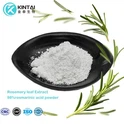Yohimbe powder, derived from the bark of the Pausinystalia yohimbe tree, has gained widespread popularity in recent years due to its potential benefits. This natural supplement is extracted from the evergreen tree native to parts of West Africa and has been traditionally used for various purposes. However, it's essential to understand the potential uses, effects, and precautions associated with yohimbe powder before incorporating it into your routine.
What Is Yohimbe Extract Used For?
Yohimbe extract has been utilized for several purposes, primarily due to its active compound, yohimbine. One of the most well-known uses of yohimbe is as a natural aphrodisiac and libido booster. Yohimbine has been studied for its potential to improve sexual function by increasing blood flow and stimulating certain neurotransmitters associated with arousal. Additionally, some research suggests that yohimbe may help with weight loss by promoting fat burning and increasing energy expenditure. However, it's important to note that the evidence is not conclusive, and more research is needed in this area.
Another potential use of yohimbe is in managing erectile dysfunction (ED). Yohimbine has been shown to block certain receptors in the body, which may help improve blood flow and enable better erections. However, the effectiveness of yohimbe for treating ED is still under debate, and it's essential to consult with a healthcare professional before using it for this purpose.
Furthermore, yohimbe has been studied for its potential benefits in improving athletic performance and muscle growth. Some research suggests that yohimbine may help increase the body's production of nitric oxide, which can lead to improved blood flow and oxygen delivery to muscles. This effect may enhance endurance and exercise performance. However, more research is needed to confirm these benefits and establish safe and effective dosages for this purpose.
In traditional medicine, yohimbe has also been used to treat various conditions, such as fever, leprosy, and coughs. While there is limited scientific evidence to support these uses, the plant's long history of traditional use suggests that it may have other potential therapeutic applications that warrant further investigation.
Is Yohimbe Safe to Take?
While yohimbe powder has been used for centuries in traditional medicine, it's crucial to understand the potential risks and side effects associated with its use. Yohimbine, the active compound in yohimbe, can interact with various medications, including antidepressants, blood pressure medications, and certain supplements. It's essential to consult with a healthcare professional before taking yohimbe, especially if you have underlying medical conditions or are taking other medications.
One of the most common side effects of yohimbe is increased heart rate and blood pressure. This effect can be particularly concerning for individuals with cardiovascular issues or those taking medications that affect blood pressure. Additionally, yohimbe may cause anxiety, headaches, nausea, insomnia, and stomach upset in some individuals.
It's important to note that yohimbe should be used with caution and under the supervision of a healthcare professional. Improper use or excessive dosages can lead to serious adverse effects, including heart palpitations, seizures, kidney failure, and potentially life-threatening reactions.
Yohimbe may also interact with certain medications, such as antidepressants, blood thinners, and medications used to treat diabetes or high blood pressure. These interactions can increase the risk of side effects or alter the effectiveness of the medications.
How to Use Yohimbe Extract Powder Safely?
If you decide to use yohimbe extract powder, it's essential to follow proper dosage guidelines and consult with a healthcare professional, especially if you have any underlying medical conditions or are taking other medications. Here are some tips for safe use:
1. Start with a low dose: Begin with the lowest recommended dose and gradually increase if needed, under the guidance of a healthcare professional.
2. Avoid prolonged use: Yohimbe should not be used for extended periods without proper medical supervision.
3. Stay hydrated: Yohimbe can cause dehydration, so it's important to drink plenty of water while taking it.
4. Be cautious with medications: Inform your healthcare provider about any medications or supplements you're taking to avoid potential interactions.
5. Monitor side effects: Watch for any adverse reactions, such as increased heart rate, anxiety, headaches, or gastrointestinal issues, and discontinue use if they occur.
6. Purchase from reputable sources: Obtain yohimbe extract powder from reputable sources to ensure quality and purity.
7. Follow dosage instructions: Carefully follow the recommended dosage instructions on the product label or as advised by a healthcare professional.
It's also important to note that yohimbe should not be used by pregnant or breastfeeding women, as well as individuals with certain medical conditions, such as heart disease, kidney disease, or liver disease, without proper medical supervision.
Potential Benefits and Research
While the research on yohimbe is still limited, some studies have explored its potential benefits in various areas:
1. Sexual Function: Several studies have investigated the effects of yohimbe on sexual function in both men and women. Some research suggests that yohimbine may help improve sexual arousal and desire, as well as erectile function in men with ED. However, the results have been mixed, and more research is needed to establish its efficacy and safety for this purpose.
2. Weight Loss: Yohimbine has been studied for its potential to enhance fat loss and weight management. Some research suggests that it may increase the body's ability to burn fat and boost energy expenditure. However, the results are not conclusive, and more research is needed to determine its effectiveness for weight loss.
3. Athletic Performance: A few studies have explored the potential of yohimbe to improve athletic performance and muscle growth. Some research suggests that yohimbine may increase the production of nitric oxide, which can improve blood flow and oxygen delivery to muscles, potentially enhancing endurance and exercise performance. However, more research is needed to confirm these benefits and establish safe and effective dosages.
4. Mental Health: Some research has explored the potential of yohimbe extract for improving mood and alleviating symptoms of depression and anxiety. While the results are preliminary, some studies have suggested that yohimbine may interact with neurotransmitters involved in mood regulation, potentially offering benefits for certain mental health conditions.
It's important to note that while these potential benefits are promising, more research is needed to fully understand the efficacy and safety of yohimbe for these purposes. Additionally, the quality and purity of yohimbe supplements can vary, which may impact their effectiveness and safety.
Conclusion
Yohimbe powder has been used for centuries in traditional medicine, but its potential benefits and risks should be carefully considered. While it may offer some advantages in specific areas, such as sexual function, weight loss, and athletic performance, its safety profile and effectiveness are still under investigation. It's essential to consult with a healthcare professional before using yohimbe extract powder, especially if you have underlying medical conditions or are taking other medications. By following proper dosage guidelines, monitoring for potential side effects, and purchasing from reputable sources, you can potentially benefit from this natural supplement while minimizing risks.
Our Yohimbe Extract Powder Bulk has received unanimous praise from customers. If you would like to know more about this product, please feel free to contact Sales@Kintaibio.Com.
References
1. Kamen, G. (2019). Yohimbe: Uses, Dosage, and Side Effects. Healthline.
2. National Center for Complementary and Integrative Health. (2021). Yohimbe.
3. Bremner, W. J., & Mehran, A. (1993). Yohimbine--enhanced sexual function in males with erectile dysfunction. The Journal of Urology, 149(5), 1157-1161.
4. Ostojic, S. M. (2006). Yohimbine: the effects on body composition and exercise performance in soccer players. Research in Sports Medicine, 14(4), 289-299.
5. Carey, M. P., & Johnson, B. T. (1996). Effectiveness of yohimbine in the treatment of erectile disorder: a systematic review. Archives of Family Medicine, 5(4), 241-248.
6. Tam, S. W., Worcel, M., & Wyllie, M. (2001). Yohimbine: a clinical review. Pharmacology & Therapeutics, 91(3), 215-243.
7. Giamberardino, M. A., Dragani, L., Valente, R., Di Lisa, F., Saggini, R., & Vecchiet, L. (1996). Effects of prolonged L-arginine administration on panic attacks. Medical science monitor, 2(1), 11-17.
8. Zheng, B. L., He, K., Kim, C. H., Rogers, L., Shao, Y., Huang, Z. Y., ... & Zheng, Q. Y. (2000). Effect of a lipidic extract from lepidium meyenii on sexual behavior in mice and rats. Urology, 55(4), 598-602.
9. Meston, C. M., & Worcel, M. (2002). The effects of yohimbine plus L-arginine glutamate on sexual arousal in postmenopausal women with subjective sexual arousal disorder. Archives of Sexual Behavior, 31(4), 323-332.
10. Carey, M. P., & Johnson, B. T. (1996). A systematic review of yohimbine for the treatment of erectile dysfunction. Clinical Therapeutics, 18(4), 655-668.







